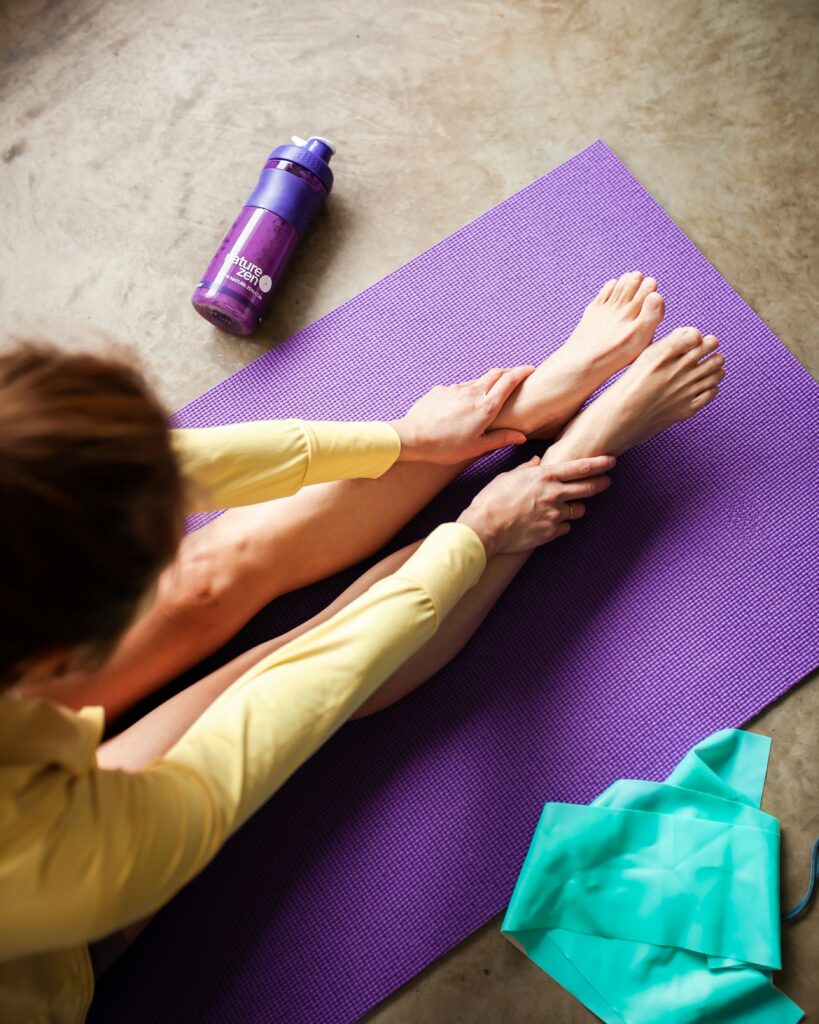Change is hard! Chances are, you already know the changes you’d like to make to be a happier healthier version of you. You know you should sleep more, or drink more water, eat more vegetables, or get more exercise. The problem is, no matter how bad you want to, forgetfulness, procrastination, or life’s ups and downs get the better of you.
In the winter, especially after New Year’s day, many of us pledge to improve ourselves in some way. But good intentions and will-power aren’t enough: The year rolls around and usually we’re no better off and whatever resolutions we made are long forgotten.
Small Habits Are the Key to Big Changes
Life is challenging enough these days. It’s hard to take on more. When we try to implement drastic changes that require a complete overhaul of our day, our body, or involve large sacrifices in our lifestyle or bank account, the stress of it can just feel too difficult.
That’s why the secret to true and lasting change is through adopting small habits over time. Research shows that ‘habit formation’ is the most effective way to change your health and happiness.
But there is an art and a science to being successful in adopting new habits. Here are some important tips:
Single Small Habits
- Pick one small thing you can change or do and stick to it. If you can stick to it 21 days you’re doing great. 60 days of a new habit can make it a permanent part of your life.
- Don’t add any other changes or habits until the first one is fully integrated into your life.
- Once the new habit is a part of your life, pick another small change you can manage. Several small changes will most likely get you further than attempting one large and difficult change.
- Choosing a habit that’s small and easy helps you build self-esteem and a feeling of success. This will help build your “can do” approach and carry over into future success as you adopt more new habits.
Don’t Allow Yourself to Forget
- Add the new habit to your to-do list or schedule. Set an alarm!
- Prepare what you need for your new habit in advance. (Fill a sport bottle with water and keep it by your bedside, or set a timer on the television to turn it off at 8pm. Meal prep several salads at once in easy-to-grab containers to take with you when you head off to work.)
Make it Automatic
- Tie your new habit to another thing you do automatically — drink a glass of water right after you brush your teeth or walk the dog an extra block when you take him out every morning. This way the new habit is coupled with an established habit.
- Couple a new habit with something you really enjoy. If your goal is to read a chapter a day in a new book, couple it with your existing tea break that you already love. Are you trying to add 10 sit-ups to your day? Do them during a favorite tv show or while listening to your morning news podcast.
Reward Yourself
- Make a note on your calendar each day when your new habit is done. It’s like a gold star!
- Celebrate when you’ve been consistent for 21 days. Reward yourself.
- Make your reward something associated with that habit: Did you keep your new bedtime? Treat yourself to a luxurious pillow or a new duvet. Did you drink your water every morning? Gift yourself a fancy sport bottle in your favorite color.
See Failure as a Learning Experience
When you don’t follow through on your chosen small habit, don’t just beat yourself up about it or wallow in guilt. Dig deeper. Examine what factors prevented you from sticking to your new habit. Is there anything you can change up? Can you make the habit even smaller?
If you just didn’t or couldn’t do your new habit, maybe this isn’t the right habit to adopt now. Is there another habit that’s simpler or more fun for you to work on? Swap it for another new habit that sounds more doable. When you’re new at establishing habits, experiencing success is critical. Pick something you know you can succeed at.



Here are Examples of Small Habits for Greater Well-Being
- Many people swear by drinking a full glass of water (warm or cold, with lemon, or plain) the first thing in the morning after they brush their teeth. This helps them start their day hydrated so that everything works better, and helps them meet their goal of drinking more water. Is this an easy habit you could try?
- Some folks need more sleep and make a point to set a reasonable but fixed bedtime, so that they’re not tempted to stay up and scroll on their phones or binge another episode on Netflix. Getting enough sleep and establishing a regular sleep schedule is a great wellness booster. Can you pick a time when you’ll have your pjs on and tuck yourself in? Don’t aim for too early, pick a time that’s reasonable and just a bit sooner than you normally turn in.
- Getting more exercise – be it jogging or just some simple stretches – is a goal on most people’s wellness list. Studies show that those who exercise early in the day are more likely to keep up their exercise habit than those who postpone it until the evening. Plus, getting your heart rate pumping early, can give you more energy throughout the day. Armed with this research, even non-exercisers can be successful if they adopt a morning routine that includes a simple brisk walk around the block or a 10-15 minute cardio video to get the day started. Is there a way you can squeeze even just 10 minutes of walking or stretching into your early morning routine?
- Building savings for a rainy day isn’t just good financial sense, it can reduce stress around money and thereby boost your overall mental health and wellness. Is there a small habit you can stick to that would help you sock away even $5 or $10 dollars a week? Maybe you can pack your own lunch once or twice a week, or make coffee at home, or eat out for dinner just once a week. Don’t choose a big sacrifice that will make you feel miserable or deprived – just choose a small tweak that you can commit to.
Conclusion
Successfully adopting even one small wellness habit is a gamechanger on so many levels. Not only will it deliver its own unique benefit incrementally over time, it will reinforce that you have power over your own life, that you can take care of yourself, and show yourself real self-love.
Want to Learn More About Skin Health?
Click HERE to get the Amethyst Holistic Skin Solutions Newsletter. You’ll receive interesting information about skin health via articles, before/after pictures, case studies of Amethyst patients, videos, interviews and more. Feel free to share this article with someone who you think may benefit.
About the Author
Olivia Hsu Friedman, LAc, Dipl.OM, DACM, Cert. TCMDerm, is the owner of Amethyst Holistic Skin Solutions and treats Acne, Eczema, Psoriasis, and TSW. Olivia treats patients via video conferencing using only herbal medicine. Olivia is Chair of the Board of Directors of the American Society of Acupuncturists, serves on the Advisory Board of LearnSkin, and is a faculty member of the Chicago Integrative Eczema Group sponsored by the National Eczema Association.



